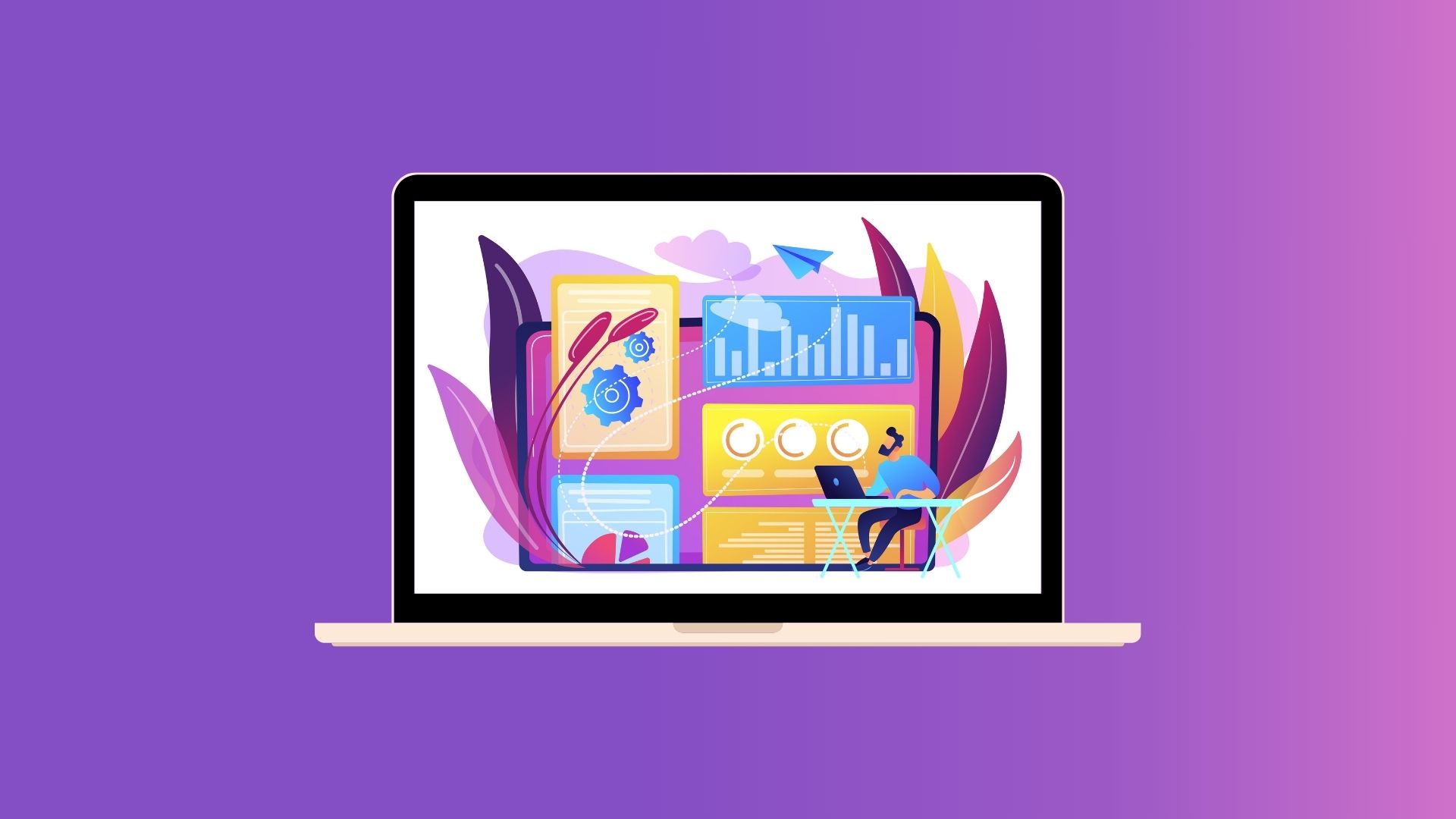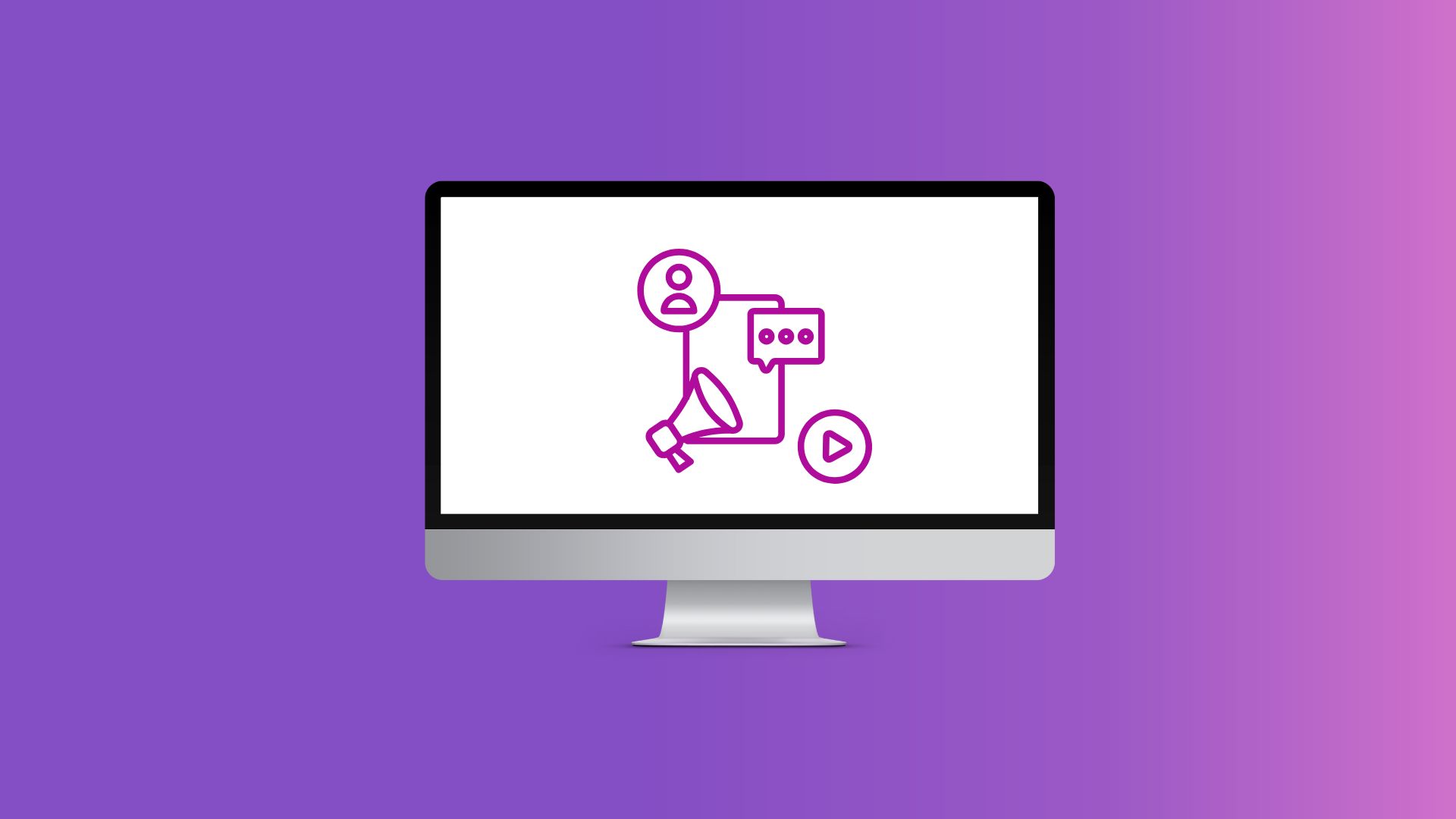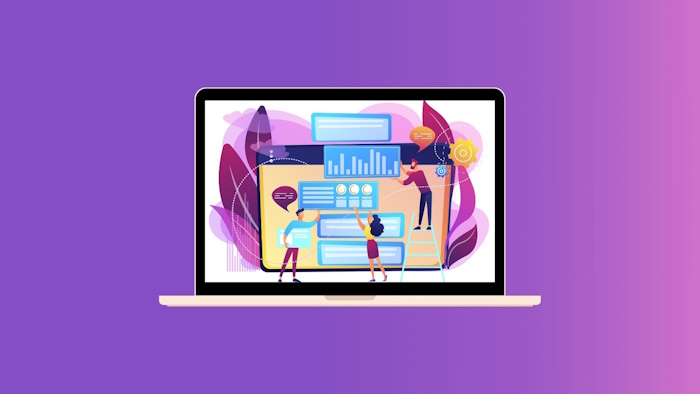2025 Guide to SaaS Inbound Marketing: Strategies, Best Practices, and Tips for Success

What is SaaS Inbound Marketing?
SaaS inbound marketing focuses on creating valuable content to naturally acquire high-quality leads and increase conversions. An inbound marketing methodology engages a target audience through helpful content and genuine relationship-building. This is different from outbound marketing, which can be overly promotional and aggressive.
Inbound marketing for SaaS businesses creates more opportunities for success. Here are the reasons why:
- Develop customer-centric content. You create content that’s personalized to the needs of each potential customer. A 2024 HubSpot report discovered that 94% of marketers agree that personalization boosts sales.
- Increase brand credibility. Deviate from sales-heavy and overly aggressive promotions. Focusing on helpful content can establish brand trust and credibility. People will rely on you for educational content.
- Generate high-quality leads. A successful content strategy can bring high-quality and high-value leads. 87% of B2B marketers generate leads through relevant content marketing.
- Encourage repeat purchases. Inbound marketing leads to an increase in customer retention. Repeat purchases or subscriptions are important for a SaaS business. It’s more cost-efficient than acquiring new customers.
Inbound and outbound marketing are both effective strategies for SaaS businesses. But if you want a more sustainable SaaS marketing strategy, inbound campaigns are the way to go. These strategies are more effective in connecting with and building a loyal customer base.
Understanding the SaaS customer journey
The SaaS inbound marketing funnel refers to the transition from leads to conversions. It’s also called the buyer journey. You provide valuable content in each stage, properly nurturing your leads into conversions.
Your inbound marketing campaigns should target each stage of the SaaS sales funnel. We enumerated these key stages, along with suggested content types for each one.
- Awareness Stage
People research software solutions or options to address their pain points. In this stage of the customer journey, you start introducing your products or services. It’s an opportunity to increase brand awareness and reach new audiences.
Here are content types you could prioritize in the awareness stage:
- How-to-guides for frequently asked questions or topics
- Social media posts, including short reels, memes, and infographics
- Free-to-watch webinars or interviews with industry experts
- Consideration Stage
Your target audience is now aware of your products or services. They’re aware of related brands and your competitors as well. Now is the opportunity to show your competitive advantage, focusing on your unique value proposition.
Consider pushing these content types in the consideration stage of the marketing funnel:
- Comparison guides, focusing on product features, benefits, and pricing
- Case studies of how you previously helped customers address their needs
- Customer reviews and testimonials
- Free product trials and demos
- Decision Stage
It’s a great day for everyone at your SaaS company. You have successfully transitioned a lead into one of your paying customers. It’s now your chance to showcase the unique features of your product.
You can offer these content types during this stage of the sales funnel:
- Upselling and cross-selling of related products
- Discounts and bundles to encourage long-term commitment
- Customer feedback regarding related products
- Retention Stage
The average Customer Acquisition Cost (CAC) in the SaaS industry is $702. That’s more than any other CAC in other industries. For reference, eCommerce brands only have an average CAC of $70.
That’s why retaining customers is extra important in the SaaS niche. These kinds of content can help you retain customers for the long run:
- Tutorials and guides on using new products
- Dedicated customer support, including FAQs section and chat support
- Community forums on Discord, Slack, and social media platforms
Key Components of a Successful SaaS Inbound Marketing Strategy
There are key components that drive your SaaS inbound marketing efforts. These are specific marketing aspects that can produce inbound marketing success. Here’s a quick overview:
- Content marketing: Optimize your content promotion strategy with people-first content.
- Search engine optimization (SEO): Bank on keyword research to drive organic website traffic.
- Social media marketing: Increase your visibility on social media channels.
- Email marketing: Leverage audience segmentation to personalize email campaigns.
- Lead generation: Generate higher-value leads to maximize your ROI.
- Customer retention: Manage customer accounts to reduce churn rate.
We’ll discuss how to implement specific strategies for each of these inbound marketing components. Read more below to find out.
Content Marketing Strategies for Inbound Marketing
Content creation is a never-ending process when developing an inbound marketing strategy. You create content for each stage of the customer journey. Delivering the right content can help you target customers with a higher intent of purchase.
You gain competitive advantages when you implement SaaS content marketing campaigns. Here are several benefits:
- Establish thought leadership. Build your credibility and authority as a SaaS brand. Ensure that your content is factual, accurate, and informational.
- Integrate multi-channel marketing. Promote your content across all relevant digital platforms. This gives you more opportunities to reach your target customer base.
- Address pain points in your target market. Develop content and blog posts that help resolve customer needs. In return, you establish a loyal customer base.
Let’s look at three trending strategies for doing SaaS content marketing. These content strategies could get you a headstart in your niche.
Utilize AI-Powered Tools for Content Personalization
Is AI replacing human writers any time soon? No, of course not. However, you can leverage AI to augment your content creation process.
When using AI for content marketing, the first thing that comes to mind is personalization. Collect customer data, feed them to an AI marketing platform, and get personalized recommendations.
We recommend these tips for utilizing AI tools for customizing your content:
- Use AI-powered content recommendation engines like OpenText. These tools analyze your audience’s behavior patterns, interests, and demographics. You’ll get data-driven insights on products and content to show to your audience.
- Generate engaging content with AI writing assistants like Jasper.ai. AI tools can generate compelling outlines, captions, and one-liners. You can use AI writing assistants to make your content more relatable.
- Dive into predictive analytics with tools like Dynamic Yield. Predictive analytics looks into your audience’s browsing patterns and purchase history. This will give you an idea of what content will engage your customers the most.
Leverage Video Marketing
In 2023, the global spending on video advertisements reached $176.63 billion. Video content is steadily rising in the ranks as one of the most effective content formats in marketing.
For SaaS brands, we recommend these specific video content formats:
- Use personalized video messages throughout the buyer’s journey. To attract and retain customers, offer welcome videos, product tutorials, and client testimonials.
- Leverage dynamic video ad formats on your website and social channels. Dynamic ads are automatically personalized based on demographics, browsing history, and behavioral patterns.
- Focus on short-form reels and videos. People might find it difficult to keep up with long videos. Try to focus on witty short-form reels to keep your audience engaged.
Repurpose Existing Content
Don’t waste your vast library of existing content. They may be outdated in terms of format and information. But there’s something that we can do about it.
Existing content can be a gold mine when doing inbounding marketing for SaaS. Here are strategies that you can use in repurposing existing content:
- Break down long-form content into episodes. Transform long-form blog posts into a series of episodic content. This effectively builds anticipation and encourages your audience to stay updated on your platforms.
- Adapt your existing content for trending formats. Short-form reels engage more audiences today. For instance, you can break down a blog post into short reels on YouTube Shorts. TikTok and Instagram Reels are also effective platforms for short, engaging videos.
SEO Strategies for SaaS
SEO is a crucial growth driver for a SaaS business. More than four in 5 marketers point to SEO as a positive impact on marketing. Ranking on the top of search engine results can drive sustainable traffic to your website.
When done the right way, SEO can provide these benefits to your business:
- Create targeted content on search engines. A thorough keyword research can produce content that resonates with your audience. Improve your click-through rate and increase brand recognition.
- Earn a higher ROI. Ranking high on Google Search helps you acquire high-quality leads. As a result, you engage with potential customers with higher intent to purchase or take action.
- Increase your Domain Authority (DA). Higher DA leads to more organic traffic in search engines. It also gives you a competitive advantage, which is essential in the SaaS market.
Along with keyword research, there are other aspects of a SaaS SEO checklist that need attention. Take a look at these three SEO game-changers below.
Technical SEO
Technical SEO refers to the technical health and structure of your website. Google prioritizes this SEO aspect because it wants users to have a smooth browsing experience.
Issues in technical SEO will harm your website’s performance. Avoid such issues by prioritizing this technical SEO checklist:
- Optimize your page loading speed. Compress heavy images and avoid putting too many ads. Use Google’s PageSpeed Insights to test and optimize your website’s loading speed.
- Prioritize mobile responsiveness. Most of your traffic will come from mobile devices. Sitechecker is a tool you can use to test your website’s mobile-friendliness.
- Schedule regular audits of your website. Use tools like Screaming Frog to identify technical SEO issues. Schedule monthly or quarterly SEO audits, depending on the size and complexity of your website.
On-page Optimization
On-page SEO helps ensure that Google understands each of your web pages. This is essential in guaranteeing the visibility of your product pages, landing pages, and blog section.
For easy reference, here are the key components of on-page SEO:
- Keyword research and placement
- Content relevance and quality
- Meta tags, including title tags and meta descriptions
- Image optimization, including alt text and descriptive file names
- Internal linking to relevant posts
On-page SEO plays a huge role in a website’s crawlability and indexability. Ensure that you put the right keywords in your meta tags. However, be careful not to stuff your headings and descriptions with keywords.
Link-building Strategies
Link-building is the acquisition of high-quality backlinks to boost your website’s authority. A strong backlink profile signals high credibility, improving your ranking and visibility.
High-quality and relevant backlinks boost your domain authority. However, be careful not to fall to spammy link-building tactics. Google has implemented spam policies that punish black-hat link-building strategies.
White-hat link-building should be part of your inbound marketing methodology. Here are strategies that will help you naturally acquire backlinks:
- Focus on creating high-quality content. This will naturally attract people in your niche, especially authoritative websites.
- Reach out to relevant websites and offer guest posts. Write about topics that they haven’t covered yet.
- Try broken link-building strategies. Identify relevant, authoritative sites with broken links. Then, take the initiative to produce an article or blog that could replace the broken link.
Social Media Marketing Strategies for Inbound Marketing
In 2024, there are five billion social media users worldwide. That’s why social media advertising or marketing is a go-to strategy for SaaS brands. It’s an effective platform for building brand visibility and trust.
According to a 2024 Statista study, here are the leading benefits of social media marketing:
- Increased exposure
- Increased traffic
- Generated leads
- Developed loyal fans
- Improved sales
These benefits align with the goals of inbound marketing for SaaS markets. Social media can be a game-changer in your sales process.
Having said that, we came up with the most trending strategies in social media marketing. Take a look below.
Utilize Marketing Automation Software
There are many SaaS marketing automation tools you can use for social media campaigns. These tools offer varied solutions, from content scheduling to performance monitoring.
We enumerated the best automation tools for each social media aspect:
- Social media management: Buffer, Hootsuite, and Sprout Social
- Social listening: Brandwatch and Google Alerts
- Customer support and communication: Zendesk and Intercom
- Social media analytics: Agorapulse, Emplifi, and Talkwalker
You can also use built-in tools on social media channels. Platforms like Facebook, Instagram, and X (formerly Twitter) provide free analytics and scheduling features.
Engage and Re-engage With Your Audience
In social media, you don’t just let your audience come to you. You build a solid audience base through constant engagement and re-engagement. Consistency is the number one success tip in social media.
Posting on social platforms is not the only way to engage with your audience. Success social media marketing campaigns also use these unique strategies:
- Create private or member-exclusive communities. Invite members to private chatboxes or social media groups. Provide them with exclusive or early access to product launches, tutorials, and discounts.
- Use paid ads wisely. Social channels allow you to put up advertisements to boost your visibility. However, make sure to use your marketing budget wisely. Overrelying on paid ads could be harmful in the long run.
- Interact on a daily basis. You want your audience to see your brand regularly. Interact with them in your comment sections. You can also participate in online forums or discussions to enhance your credibility.
Leverage Influencer Marketing
Collaborating with influencers and affiliates is now a big thing in social media. You can reach a wider audience that’s still within your market or niche. It can lead to a successful word-of-mouth marketing strategy, especially when focusing on engagement and conversions.
Launching an influencer marketing campaign relies on several key factors. Prioritize these factors to maximize your investment:
- Work with influencers in your niche. This setup allows you to engage with an audience who are interested in your brand.
- Provide brand-specific guidelines to follow. Require influencers to follow your branding and messaging. Miscommunication in content expectations and brand values could damage your reputation.
- Track your influencer marketing performance. Use analytics tools to measure the engagement and conversions you’re getting from influencer marketing. Monitor key metrics like viewing time, interactions, and shares.
Email Marketing Strategies for SaaS Marketing
There’s a reason why 81% of companies use email in their marketing playbooks. It’s still an effective way of acquiring and nurturing leads.
Emails become even more important in a SaaS marketing strategy. Why? We listed the reasons below:
- Target high-value leads. Aim for a target audience with higher purchase intent for your SaaS product.
- Automate your workflows. Create automated workflows or drip campaigns, starting from lead acquisition to customer onboarding.
- Retain more customers. Offer exclusive discounts and promotions to help retain your customers and maximize ROI.
We also recommend these SaaS email marketing strategies for your SaaS product. These techniques make use of technological advancements for a more efficient process.
Personalize Content Through Dynamic Content
Make your emails more relatable through dynamic content and hyper-personalization. These techniques use AI tools to customize subject lines and product recommendations.
SaaS brands use these steps for personalizing email content:
- Use hyper-personalization tools like Klaviyo to analyze customer preferences and browsing history.
- Leverage predictive analytics to discover the products that each customer is interested in.
- Customize subject lines, recipient name and title, and recent purchases.
Segment Your Audience
Audience segmentation is one of the advantages in email promotional campaigns. You break down your email list into targeted groups with similar characteristics.
Segmenting your email list makes it easier to offer personalized content. A more personalized content will resonate more effectively with your audience. This can lead to higher open rates and conversions.
There’s a set of criteria you can use to segment your email list. Take a look:
- Demographics: Age, gender, location, and occupation
- Psychographics: Interests, lifestyle, and hobbies
- Behavior: Purchase history, browsing history, and brand engagement
- Lifecycle stage: Leads, new customers, repeat customers, and lapsed customers
Automate Workflows Through Behavioral Triggers
It’s easy to automate workflows in an email campaign. This is possible through behavioral triggers, which you can set up through a marketing automation tool.
Your marketing team should look into behavioral triggers, especially for these specific benefits:
- Take advantage of relevant emails to increase engagement
- Nurture leads with timely email sequences to improve conversion rates
- Automate repetitive marketing tasks and focus on more complex projects
Behavioral triggers could come after abandoned shopping carts, resource downloads, and purchases. You can automate workflows through tools like Marketo and ActiveCampaign.
Lead Generation Tactics for SaaS Inbound Marketing
Lead generation is the starting point of your customer acquisition efforts. This is why lead generation is a big revenue market in the digital space. In fact, it’s expected to be valued at $10.5 billion by 2032.
Acquiring high-quality leads is key in doing inbound marketing for SaaS brands. It offers conversion-focused benefits, including the following:
- Increase in conversion rates through personalized messaging
- Increase in Customer Lifetime Value (CLV)
- Competitive advantage in acquiring higher-value clients or customers
Streamline your lead generation efforts with these trending tactics in the SaaS space.
Exchange High-Value Content For Engagements
Generate leads by offering real value to prospective customers. They can download your resources in exchange for contact information or a newsletter sign-up.
High-value content or gated content can motivate a visitor to take action. Here are examples of effective gated content for a SaaS website:
- Comprehensive guides through ebooks and whitepapers
- Product-related templates for marketing and design materials
- Educational content through webinars, workshops, and expert interviews
- Original research and data-driven studies
- Free initial consultations related to your product or service
Integrate Exit-Intent Popups
Do you encounter popups when you hit the exit button on a website? These are called exit-intent popups, and they are effective in generating leads.
You can trigger exit-intent popups to offer incentives and encourage visitors to stay. You can use heat mapping tools like Crazy Egg to automate exit-intent triggers. Here are exit-intent popup examples that you can deploy:
- Tiered discounts and limited-time coupons
- Exclusive content for newsletter subscribers and members
- Tutorials and case studies
- Product recommendations
- Discounts on paid plans and subscriptions
Offer Free Trials or Tools
Offering freemium subscriptions and tools is one of the best ways of generating leads. This way, you’re giving prospective customers a first-hand experience. They can properly gauge how your brand can help address their needs.
Here are steps in offering free trials as part of lead generation:
- Highlight the value proposition and unique features of your paid plans.
- Select features that you’ll allow in your free trial or freemium model.
- Provide a duration or period for people to access your free trials.
- Upsell or cross-sell relevant products.
- Encourage customer feedback to build brand trust and loyalty.
Customer Retention Strategies
When you acquire customers, make sure that they’ll stay for a long time. It is more cost-efficient to retain customers than onboard new ones.
A good retention rate doesn’t just provide a regular stream of revenue. It also builds brand reputation through customer feedback and word-of-mouth marketing.
Your sales team and marketing manager should consider these proven retention strategies:
Provide Ongoing Engagement
The work doesn’t stop after a purchase or a client is onboard. You have to continuously provide helpful content to keep them engaged.
Here are content types that you can offer to your SaaS customers:
- Personalized emails, SMS, and in-app messages
- Updates on new products and service upgrades
- Product-related tutorials and workshops
- Brand-initiated online forums and industry events
Offer 24/7 Customer Support
There’s no better way of retaining customers than resolving their pain points. Customer support should be a fundamental element in any marketing campaign.
Providing around-the-clock support is a testament to your dedication to the customers. Have a look at these tips for supporting your customers’ needs and preferences:
- Assign a dedicated account manager to each client or customer.
- Provide 24/7 technical support to address real-time issues in client accounts.
- Post a help center or a Frequently Asked Questions (FAQs) section.
Launch Loyalty Programs
Another way to retain customers is to launch loyalty programs. These are tiered programs that incentivizes customers for purchases and other actions.
A successful loyalty program can bring in repeat business. Here are different ways you can implement a SaaS loyalty program:
- Point-based systems for purchases and referrals
- Incentives for successful referrals
- Badges and leaderboards
- Limited-time promotions and exclusive deals
- Exclusive VIP events and parties
How to Measure and Optimize Your SaaS Inbound Marketing
Market trends and consumer needs change over time. Your SaaS inbound marketing playbook needs to adjust to these changes too. That’s why it’s fundamental to constantly track your marketing and sales efforts.
There are key metrics you should prioritize, depending on your current goals. We recommend monitoring these metrics to evaluate the performance of your inbound campaign:
- Website performance: Organic search traffic, paid traffic, keyword rankings, and bounce rate
- Social media marketing: Organic reach, post shares, follower growth, click-through rate, and brand mentions
- Email campaigns: Open rate, click-through rate, unsubscribe rate, spam complaints, and conversion rate
- Lead conversion: Conversion rate, conversion time, acquisition cost, lifetime value, and lead quality
- Customer support: First Contact Resolution (FCR), Net Promoter Score (NPS), and average response time
You can use different analytics tools to measure your marketing effectiveness. For SEO, you can take advantage of free tools like Google Analytics and Google Search Console. You can also utilize free built-in analytics tools on social media platforms.
Common Pitfalls in SaaS Inbound Marketing and How to Avoid Them
It’s normal for a SaaS organization to go through growing pains in inbound marketing. It takes time to fully understand what content resonates with your audience.
SaaS brands encounter pitfalls in their inbound content campaigns. We enumerated these common SaaS content challenges to help you avoid such pitfalls:
- Failure to align content strategy to business goals
- Failure to follow a consistent content schedule
- Outdated keyword research
- Inconsistent brand voice and messaging
- Relying too much on paid ads
- Ignoring customer feedback and insights
Most SaaS organizations work with marketing experts to mitigate these risks. For example, a search marketing agency like Fortis Media can bring sustainable traffic to your website. Plus, they have a dedicated SaaS SEO team that is a marketing innovator in the SaaS sector.
You should ensure that the agency has specialized expertise in your niche. This way, your SaaS inbound marketing strategy will be more relatable to your customer base.
Conclusion
Content is king in any industry and the SaaS niche is not an exception. If you want to drive more conversions, your content should connect with your audience.
As opposed to outbound marketing, inbound marketing takes on a customer-centric approach. This applies to every promotion you’re doing on any online platform. Inbound marketing can naturally attract a high-intent audience, increasing your chances of converting.
Develop a content strategy that targets the evolving needs of your SaaS audience. Measure the results through key indicators and analytics points. This way, you ensure that your inbound marketing playbook is in tune with your customers’ needs.
Read our other articles

Google March 2025 Core Update: iGaming Industry Impact with Real Cases


Benefits of Enterprise SEO: Why Large-Scale Businesses Need It


B2B SaaS SEO: Best Practices and Strategy for 2025






